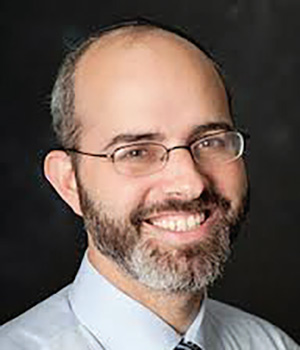
May these words of Torah be a merit le’iluy nishmat Menachem Mendel ben Harav Yoel David Balk, a”h.
Menachot 17
When can a scholar claim a Torah thought?
Our Gemara tells a story about pigul. Rav Menashya Bar Gada was sitting before Abaye, and Rav Menashya quoted Rav Chisda as teaching that if a kohen were to throw the fistful of dough from a minchah offering into the fire of the altar and declare that he intends to throw the spices of the minchah offering into the fire at the wrong time, the minchah would not become pigul, even according to the view of Rabbi Meir who says that if there was a pigul declaration about eating the remaining dough of a minchah just at the time of the throwing of the fistful into the fire, the minchah would become pigul. Abaye asked Rav Menashya if Rav Chisda was the originator of this Torah lesson. Perhaps earlier authorities had taught it. Rav Menashya conceded that in fact the real source of the lesson was Rav. This story indicates how important it is to ascribe Torah thoughts to their true originator. Rav Menashya was not claiming that it was his own thought; he was crediting Rav Chisda. Nevertheless, Abaye insists that Rav get credit for the idea because the idea actually originated with Rav.
In Pirkei Avot (6:7) we are taught that anyone who quotes a Torah thought in the name of the one who first said it brings redemption to the world. Magen Avraham (156:2) writes that if you say over a Torah idea without giving credit to its source, you violate a prohibition. Magein Avraham does not tell us his source or which prohibition one would violate for quoting a thought without crediting the source. Shu”t Noda Beyehuda (Tinyana Orach Chaim Siman 20) teaches that the source of the Magein Avraham is a Midrash Tanchuma (Bamidbar 27), “Rabbi Chizkiyah and Rabbi Yirmiyah Bar Abba taught in the name of Rav Yochanan that anyone who quotes a Torah thought and does not credit the true originator of the Torah idea is a violator of the verse Mishlei 22:22), “Al tigzol dal ki dal hu,” “Do not steal from the poor because he is poor.” What can you steal from the poor? You can steal from them the credit for the Torah ideas they came up with. It emerges from these sources and from Gemara Nazir (56b) that if you hear a Torah thought from someone or see it quoted in a book, it is not enough to credit where you saw it or heard it; you also need to give credit to the originator and creator of the Torah thought.
Midrash Shmuel (Avot 6:7) gives an interesting explanation for why crediting Torah thoughts to their sources brings redemption to the world. If a person says over Torah without crediting the true source of the Torah, people will think that it his own Torah. He will then not toil and try to create new Torah insights. He is getting honor off the work of others so he will not try to work hard to create his own Torah insights. But a person who is careful to always quote the true originator of a Torah thought sees that by creating Torah thoughts a scholar becomes eternally remembered. This will inspire the Torah student to create his own thoughts so that he too will be quoted and remembered. This will bring redemption. When there are more innovative Torah insights being created, the Torah is better acquired. The growth of Torah insight and the increase of true acquisition of Torah knowledge brings the redemption closer.
In light of all this, Sefat Emet finds the actions of Rav Menashya in our Gemara difficult. Why didn’t Rav Menashya give Rav the credit for being the originator of the insight? Why did Abaye need to prod Rav Menashya to quote it in the name of Rav? Quoting a thought in the name of its originator hastens redemption. Why wouldn’t Rav Menashya try to bring the redemption closer? Sefat Emet answers that Rav only said that if a kohen were to throw the fistful of dough from a minchah offering into the fire of the altar and declare that he intends to throw the spices of the minchah offering into the fire at the wrong time, the minchah would not become pigul. Rav did not add that Rabbi Meir would agree to this. Rav Chisda had added that Rabbi Meir would agree to this. Since Rav Chisda was adding to the thought of Rav, Rav Menashya felt that it could be ascribed solely to Rav Chisda. A new lesson emerges: If a scholar adds to a Torah thought, he can rightfully claim credit for the entirety of the insight. (Mesivta)
By Rabbi Zev Reichman
Rabbi Zev Reichman teaches Daf Yomi in his shul, East Hill Synagogue.











